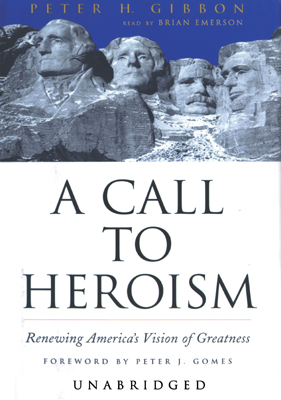What do we look for in our heroes of today? And what are we to expect of heroes in our uncertain future? In this book, Gibbon traces the evolution of our collective vision of greatness from the age of our founders to today's celebrity-obsessed media age. Among history's exemplary men and women who have sacrificed for causes greater than themselves he includes not only traditional civic heroes, such as George Washington, but also heroes of ideas and conscience: scientists, educators, religious leaders, and activists. Also discussed are monuments and artworks dedicated to heroes to examine what these memorials say about the America of their time and to us today. Gibbon concludes that, although our reverence for ideals may have eroded, we now have a unique opportunity to forge a new understanding of what it means to be a hero.
- Available now
- New eBook additions
- Most popular
- Try something different
- Popular Graphic Novels
- Popular Cookbooks
- Manga Series Starters
- Celebrate Disability Pride Month!
- See all ebooks collections
- Available now
- New audiobook additions
- Try something different
- Most popular
- Language Learning
- The Great Courses
- Celebrate Disability Pride Month!
- See all audiobooks collections
- Most Popular
- News & Politics
- Cooking & Food
- Celebrity
- Home & Garden
- Entertainment
- Health & Fitness
- Fashion
- Hobbies & Crafts
- Tech & Gaming
- Cars & Motorcycles
- Family & Parenting
- Sports
- See all magazines collections

